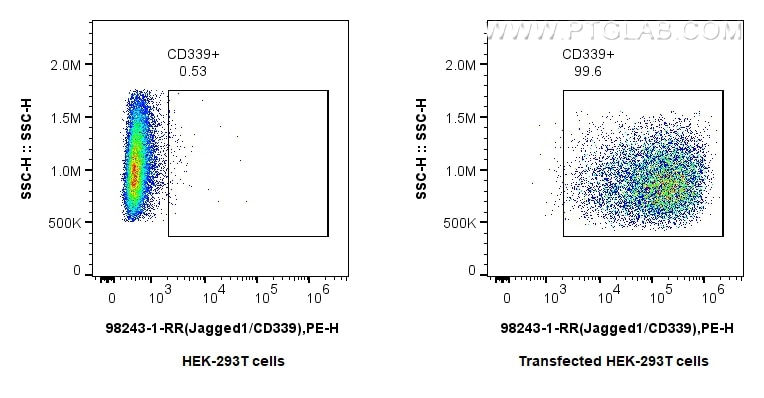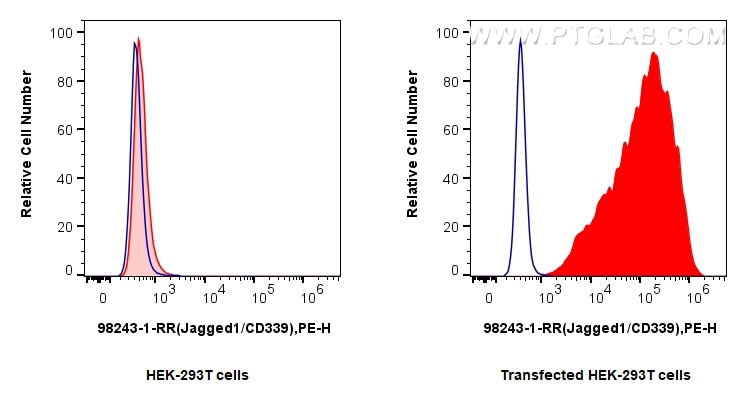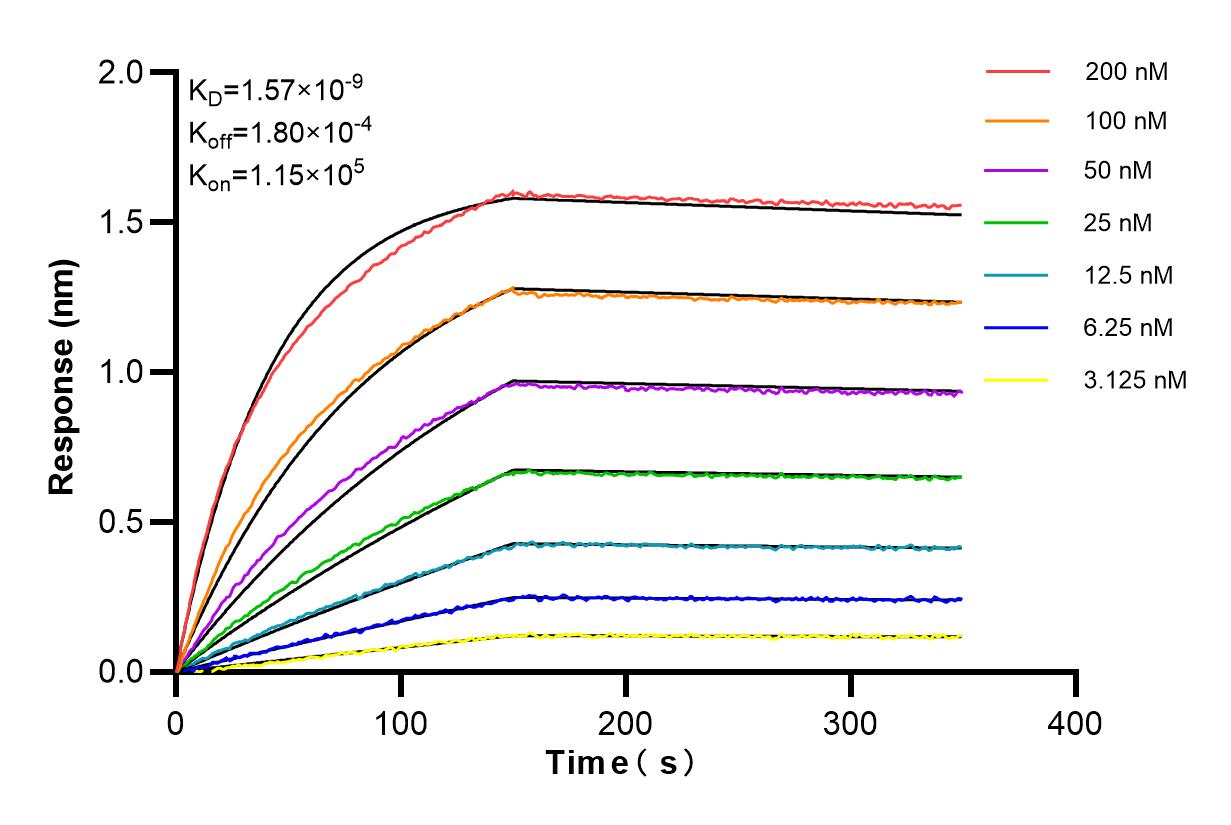Tested Applications
| Positive FC detected in | Transfected HEK-293T cells |
Recommended dilution
| Application | Dilution |
|---|---|
| Flow Cytometry (FC) | FC : 0.25 ug per 10^6 cells in 100 μl suspension |
| This reagent has been tested for flow cytometric analysis. It is recommended that this reagent should be titrated in each testing system to obtain optimal results. | |
| Sample-dependent, Check data in validation data gallery. | |
Product Information
98243-1-RR targets Jagged1/CD339 in FC applications and shows reactivity with human samples.
| Tested Reactivity | human |
| Host / Isotype | Rabbit / IgG |
| Class | Recombinant |
| Type | Antibody |
| Immunogen |
Recombinant protein Predict reactive species |
| Full Name | jagged 1 (Alagille syndrome) |
| Calculated Molecular Weight | 1218 aa, 134 kDa |
| GenBank Accession Number | BC098393 |
| Gene Symbol | Jagged1 |
| Gene ID (NCBI) | 182 |
| Conjugate | Unconjugated |
| Form | Liquid |
| Purification Method | Protein A purfication |
| UNIPROT ID | P78504 |
| Storage Buffer | PBS with 0.09% sodium azide, pH 7.3. |
| Storage Conditions | Store at 2 - 8°C. Stable for one year after shipment. |
Background Information
Jagged1 (JAG1), also known as CD339, is a type I, membrane-anchored, multi-domain protein and a ligand of the Notch receptor (PMID: 15358557). Jagged1 is composed of a relatively small intracellular domain, a transmembrane domain, and a larger extracellular component containing a cystine-rich region, 16 EGF-like repeats, a DSL domain, and a signal peptide (PMID: 15358557; 26548814). It is widely expressed throughout mammalian development, across many tissues and developmental stages (PMID: 26548814). The Jagged1-NOTCH interaction can trigger the Notch signaling and activate transcription factors that play key roles in cell differentiation and morphogenesis.
Protocols
| Product Specific Protocols | |
|---|---|
| FC protocol for Jagged1/CD339 antibody 98243-1-RR | Download protocol |
| Standard Protocols | |
|---|---|
| Click here to view our Standard Protocols |








